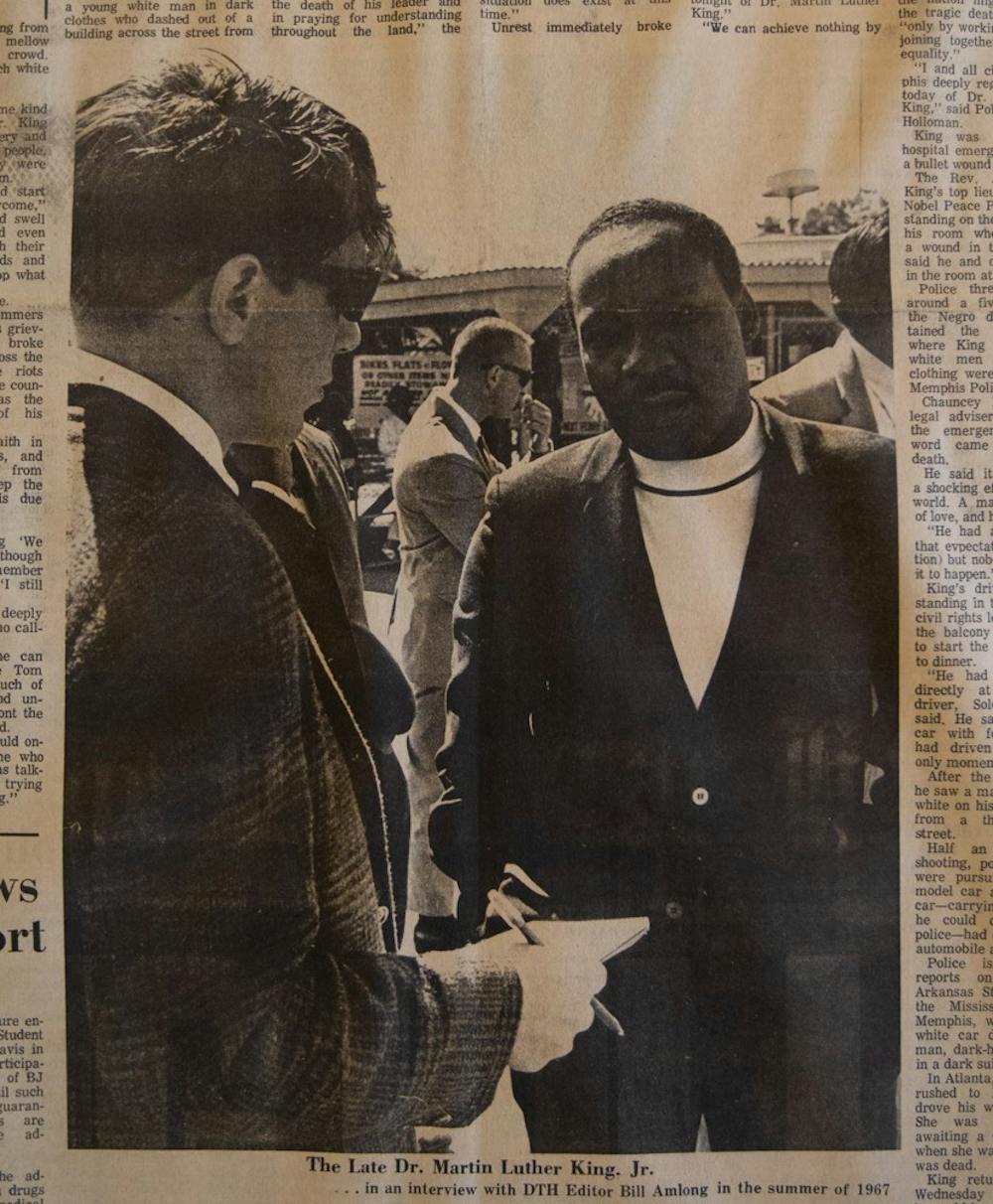In May 1960, Martin Luther King Jr. delivered four speeches in the Town of Chapel Hill calling on students to be at the forefront of social change, and 60 years later, that dream is still alive.
King's first speech of the weekend was at the African American Community Center, now known as the Hargraves Community Center, on Sunday, May 8, 1960. Most of the supporters in attendance were students at a local integrated high school.
His next speech in Chapel Hill — “The Church is the Frontier for Racial Justice” — was delivered at University Baptist Church. Despite many of the deacons being against the speech, he was allowed to come under the condition that he speak in the basement during a student group meeting, and not in the sanctuary.
On the following Monday, he spoke in a pair of sociology classes before the main speech in Hill Hall that evening entitled, "The Struggle for Racial Justice." Prior to housing the music department, Hill Hall served as the campus library, and the speech was broadcast over radio waves.
In 1959, the year before he spoke, there were 26 students of color enrolled at UNC, representing 0.3 percent of the student population. It took eight years for students to realize they could be the solution.
On Nov. 7, 1967, the Black Student Movement (BSM) at UNC was formed to unite Black students and give them a voice at the University. By 1969, Black students made up about 1.4 percent of the population. It quickly grew into something that Black students on campus supported.
Chris Suggs, president of UNC BSM, is a junior and has been involved since he was a first-year student.
“Our primary focus is to create an environment where Black students feel engaged, empowered and comfortable here at Carolina,” Suggs said.
One of the first things the group did was give then Chancellor J. Carlyle Sitterson a list of demands to improve conditions for Black students on campus.




